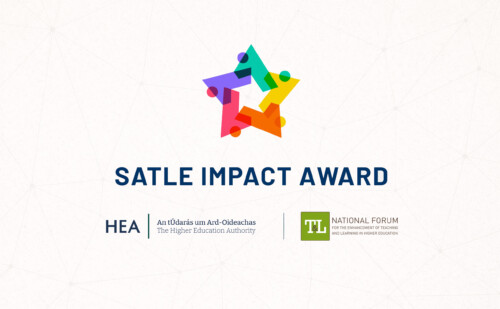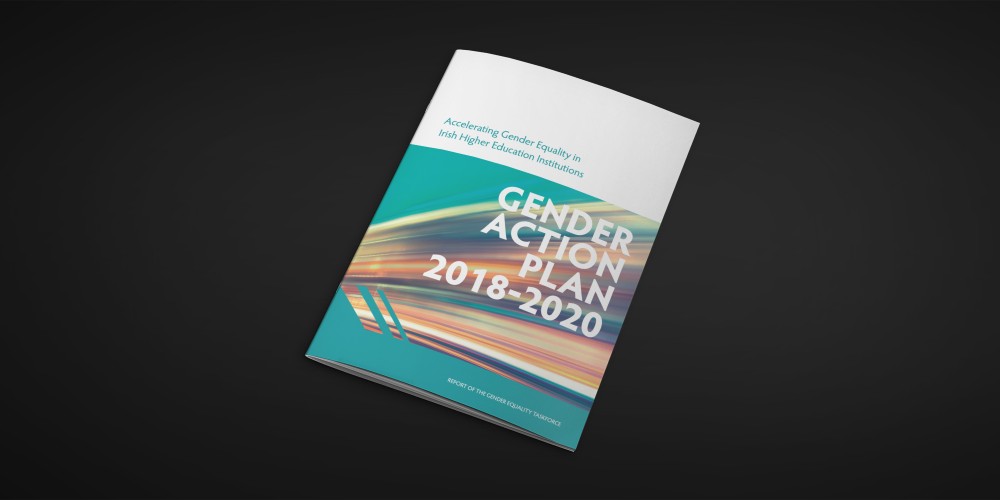
13 January, 2026
By Maura O'Shea
Posted: 12 November, 2018

Higher education institutions (HEIs) risk losing funding if they fail to accelerate gender equality.
The Higher Education Authority (HEA) today welcomed the publication of the Gender Equality Taskforce Action Plan which aims to accelerate progress towards gender equality in the universities and institutes of technology (IoT). This Gender Action Plan builds on the work of the HEA National Review of Gender Equality in Higher Education Institutions, 2016 which showed that there was significant gender inequality in Irish higher education institutions.
The HEA supports the decision by the Gender Equality Taskforce to fully endorse the recommendations of the HEA Expert Group report and welcomes the new initiatives that the Gender Equality Taskforce are proposing in order to further accelerate progress.
To accelerate gender equality within a reasonable timescale, the Gender Equality Taskforce has focused on actions that will progress organisational and cultural change such as:
– Linking HEA block grant funding to an institution’s performance in addressing gender inequality through the Strategic Dialogue process and System Performance Framework;
– Strengthening the requirement for Athena SWAN certification for all HEIs, and reflecting the increased demands associated with the expanded Charter (which now encompasses all staff and all disciplines whereas previously it was only STEM and academic staff), recommending that institutional Silver be obtained 8 years after first achieving an institutional Bronze;
– The establishment of a new Centre of Excellence for Gender Equality in the HEA to ensure sustainable acceleration towards gender equality through centralised support for HEIs and dissemination of good practice;
– Requiring gender-proofing of recruitment and promotion procedures and practices;
as well as targeted measures to accelerate change in relation to achieving gender balance of staff:
– All HEIs shall strive for gender balance in the final pool of candidates for all competitions;
– HEI’s will ensure that the flexible cascade model is used as a minimum, not as a maximum, and will set ambitious short, medium and long-term targets (1,3 and 5 years), over and above the flexible cascade model, for both promotion and recruitment of academic staff, and senior grades of professional, management and support staff;
– New and additional gender-specific posts, at appropriate levels, as well as other positive action measures, should be considered where they would be a proportionate and effective means to achieve rapid and sustainable change.
The CEO of the HEA, Mr. Paul O’Toole said:
‘The HEA has an integral role in ensuring that there is sustainable acceleration of progress towards gender equality. Gender equality in higher education institutions will enable them to perform to their full potential. The HEA is fully committed to implementing the recommendations of the HEA Expert Group report and the Gender Equality Taskforce Actions, to achieve this.’
The HEA also greatly welcomes the positive response of the Minister of State for Higher Education, Mary Mitchell O’Connor, T.D., to the Gender Equality Taskforce Action Plan, and in particular the announcement of new and additional Senior Academic Leadership posts into the higher education system. These will be targeted at areas where there is a significant under-representation of women and represents a strong signal that gender equality in Irish HEIs is a priority.
The Head of Policy and Strategic Planning in the HEA, Dr. Gemma Irvine commented:
‘The reason why women are not currently found in the same proportion as men in the most senior positions is not because women are not talented or driven enough to fill these roles, it is because numerous factors within HEIs, conscious and unconscious, cultural and structural, mean that women face a number of barriers to progression, which are not experienced to the same degree by their male colleagues.’
This new targeted initiative compliments the wider organisational and cultural change initiatives recommended by the Gender Equality Taskforce and HEA Expert Group.
ENDS
Contacts for further information:
Higher Education Authority
Notes to Editors:
Athena SWAN
The Athena SWAN Charter is an internationally recognised ‘quality mark’ for gender equality administered by AdvanceHE in the UK.
Accreditation indicates that a HEI has demonstrated its commitment and work in advancing gender equality across all academic disciplines. Accreditation is made at bronze, silver and gold levels.
Since the HEA Expert Group recommendation was published, the remit of the Athena SWAN Charter has expanded to be more inclusive of all staff working in institutions. The original application to Bronze level focused only on Science, Technology, Engineering and Mathematics (STEM) staff, whereas now all departments in an HEI will be included, and whereas previously only academic staff were included in the critical analysis, now professional, management and support staff are also included. It now takes into account the experiences of trans staff and students, and requires intersectional analysis with consideration of ethnicity.
The bronze Athena SWAN award serves as the ‘entry-level’ award certifying institutions’ commitment to the 10 key principles of the Athena SWAN Charter and requiring that they perform a critical self-analysis to identify the problem areas and indicate that a plan has been developed to address these. Whereas, a silver Athena SWAN award requires evidence that progress has been achieved, and a gold award signals that an institution is more advanced in successfully instigating structural and cultural changes to advance gender equality systemically across the institution. Therefore, any institution who has performed sufficient self-analysis can and should be able to get a Bronze, however only those that have managed to get real and meaningful change will be able to obtain a silver or indeed a gold.
Bronze Athena SWAN awards must be renewed after 3 years, after which institutions seeking to retain their award must demonstrate progress in meeting their objectives.
All HEIs will be required to have applied for the minimum Athena SWAN gender equality accreditation by end 2019. In order to be eligible to compete for research funding allocated by SFI, HRB and IRC, HEIs will be required to have achieved a Athena SWAN Institutional Bronze award by 2019. Eight years after first obtaining a Bronze award, the institutions will be required to hold the intermediate (silver) level accreditation to be eligible for competitive research funding.
Higher Education Institutions (HEIs)
The need for accreditation will apply to the seven HEA core-grant funded HEIs, as well as the Royal College of Surgeons in Ireland and the institutes of technology (IoTs).
Currently, all seven universities in Ireland have Bronze institutional awards as well as RCSI and DIT.
Key Statistics
Progress since the Expert Group report was published in 2016 has been exceptionally slow. The HEA Higher Education Institutional Staff Profiles by Gender, presents gender-disaggregated data on the leadership, governance, management and staffing of the universities, affiliated colleges and the institutes of technology, along with 3-year-average data on the gender breakdown of professors, associate professors, senior lecturers and lecturers. The HEA annual staff profile publications show that there has only been a 1% – 2% change per year in the numbers of women in senior positions.
In 2017:
In 2015-2017:
A total of 23% of professors and 32% of associate professors in the university sector were female.
In the colleges 52% of senior lecturers were female.
In the institutes of technology only 34% of senior lecturers were female.
New data analysis by the Gender Equality Taskforce examined the likely rate of change towards gender parity at professor grade from the 2014-2016 average level of 21% female professors. This showed that achieving gender balance at professor level in the university sector could take 20 years if the flexible cascade model approach (as recommended by the HEA Expert Group; whereby the proportion of men and women to be recruited or promoted to a certain level is based on the proportion of each at the career level directly below) alone is implemented. The introduction of a later retirement age could also slow down staff turnover.
International situation
International analysis shows that Ireland started from a lower baseline level of (8%) female professors in 2001, relative to France (15%), Germany (11%), and Switzerland (9%), but improved slowly to reach (22%) by 2016, similar to France (24%), Germany (23%), and Switzerland (21%). However, this analysis also shows that gender balance (a minimum 40% of either gender) is still a long way off at senior levels in higher education systems across Europe.